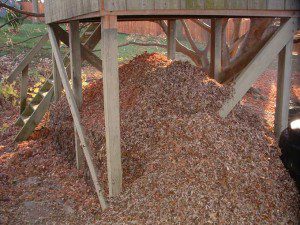The following article provides some excellent tips on how to go about composting in creating a wonderful vibrant garden. Many of the ideas are tried and tested and are proven to provide great results. The correct use of compost cannot be understated and is something we all should be taking advantage of. We hope you enjoy the article from www.veggiegardeningtips.com.
“Innovative Composting and Gardening Ideas
Barbara Pleasant is an author, gardener, and public speaker who loves sharing her experiences related to raising organic backyard gardens. I spoke with her during the summer and also sat in on a presentation of her innovative composting and gardening techniques.
She describes compost gardening as the art of arranging perfect marriages between compost and the garden. Composting is considered a seasonal activity because it happens faster during the summer and a reductive process because you wind up with so much less than you begin with.
Innovative Ideas for the Backyard Composter
 Home composting has different goals in mind from what you would find on a farm or commercial composting operation; it’s more laid back, doesn’t require the high internal temps of the pile, but still results in improved soil quality and healthy productive plants.
Home composting has different goals in mind from what you would find on a farm or commercial composting operation; it’s more laid back, doesn’t require the high internal temps of the pile, but still results in improved soil quality and healthy productive plants.
One twist that Barbara utilizes is to bring the compost pile right into the garden. This saves labor by not hauling the waste organic matter to the composting area and then finished compost to the garden design. It also allows for a “walking heap” as the pile is turned it moves down the row or garden bed, enriching the soil as it travels.
Natural allies in the quest to compost include crickets who are tremendous eaters of weed seeds and earthworms who Barbara describes as the “quietest pets you’ll ever keep.” She practices a system of catch and release vermicomposting where the worms spend their summers outdoors but are captured and brought inside during the fall.
Other Composting Strategies for the Home Gardener
- Add charcoal from burned hardwoods to the compost pile to absorb nutrients and further enrich the soil when the compost is applied to the garden.
- Chop your organic materials before adding them to the compost pile in order to create more surface area for the microbes and break the materials down faster.
- For convenience freeze kitchen scraps until you have enough accumulated to trench compost, and then bury the food waste right in the garden.
- Grow right on your compost piles to maximize space, certain crops such as squash and pumpkins will grow fine in a mountain of decomposing leaves or compost.
-
- Separate families of plants to compost them separately and then use the finished compost to feed other types of plants and reduce the risk of spreading diseases.Watch this video on composting:
Barbara’s Perspectives on Home Vegetable Gardening
Barbara also shared some great general gardening ideas and additional thoughts to reflect on. She considers gardening to be a Co-Creative process between the gardener and all of the intelligences that share the area. Therefore she supplies perches for birds, tolerates the activity of yellowjackets, and thinks diligently about all her actions in the garden.
Her speaking and writing is all geared towards helping people to garden, feed themselves, enjoy the beauty of nature, and to reconnect to the green world. She acknowledges that vegetable gardening isn’t for everyone but still believes that most would benefit from a garden, even if it consisted of just a single, solitary, houseplant!”
– See more at: http://www.veggiegardeningtips.com/innovative-composting-and-gardening-ideas/#sthash.rQ3KsPAP.dpuf
